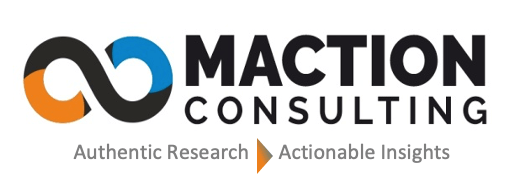Artificial Intelligence (AI) has revolutionized the landscape of market research, offering unprecedented insights and efficiency. However, the rapid advancement of AI technology raises critical ethical concerns that demand careful consideration. This blog post explores the ethical challenges inherent in AI-powered market research and provides strategies for ensuring responsible AI usage while harnessing its potential.
Navigating Ethical Challenges in AI-Powered Market Research
- Data Privacy and Security: One of the primary ethical concerns in AI-driven market research is data privacy. AI algorithms often rely on vast datasets, which can contain sensitive personal information. Protecting this data from unauthorized access, breaches, and misuse is paramount. Implementing robust data security measures, such as encryption and access controls, is essential.
- Bias and Discrimination: AI models can perpetuate or amplify biases present in the data they are trained on. This can lead to discriminatory outcomes in market research, such as targeting certain demographics unfairly. To mitigate bias, it is crucial to use diverse and representative datasets and regularly audit AI models for biases.
- Transparency and Explainability: AI algorithms can be complex and opaque, making it difficult to understand how they arrive at their conclusions. This lack of transparency can raise concerns about accountability and fairness. Ensuring transparency involves providing clear explanations of how AI models work and the factors influencing their decisions.
- Consent and Informed Choice: Obtaining informed consent from individuals whose data is used in AI-powered market research is essential. This involves clearly communicating how their data will be collected, used, and stored, as well as providing them with the option to opt out.
Responsible AI: Ensuring Ethical Standards in Market Research
- Ethical Frameworks and Guidelines: Developing and adhering to ethical frameworks and guidelines for AI-powered market research is crucial. These frameworks should address issues such as data privacy, bias, transparency, and accountability.
- Human Oversight: While AI can automate many tasks, human oversight remains essential to ensure ethical conduct. Humans should be involved in decision-making processes, particularly when sensitive information is involved.
- Continuous Monitoring and Evaluation: AI models should be regularly monitored and evaluated to identify and address potential ethical issues. This includes assessing their performance, identifying biases, and ensuring compliance with ethical guidelines.
- Collaboration and Stakeholder Engagement: Collaborating with stakeholders, including researchers, ethicists, policymakers, and industry representatives, is essential for developing and implementing ethical AI practices. Engaging with stakeholders helps to ensure that AI is used responsibly and aligns with societal values.
Case Studies: Ethical AI in Market Research
Case Study 1: Ethical Use of Facial Recognition in Market Research
A leading consumer goods company wanted to use facial recognition technology to analyze customer reactions to new product concepts. However, there were concerns about privacy and potential bias in the facial recognition algorithms. To address these concerns, the company implemented strict data privacy measures, ensured the algorithms were trained on diverse datasets, and conducted regular audits to detect and mitigate biases.
Case Study 2: AI-Powered Market Research and Data Privacy
A market research firm faced challenges in protecting sensitive consumer data collected through online surveys. To enhance data privacy, the firm implemented advanced encryption techniques, anonymized data whenever possible, and obtained explicit consent from participants. Additionally, the firm developed clear data retention policies to minimize the storage of personal information.
Conclusion
AI offers immense potential for transforming market research, but it is imperative to approach its use with ethical responsibility. By addressing data privacy concerns, mitigating bias, ensuring transparency, and obtaining informed consent, organizations can harness the power of AI while upholding ethical standards. By embracing responsible AI practices, the market research industry can contribute to a more equitable and trustworthy future.


